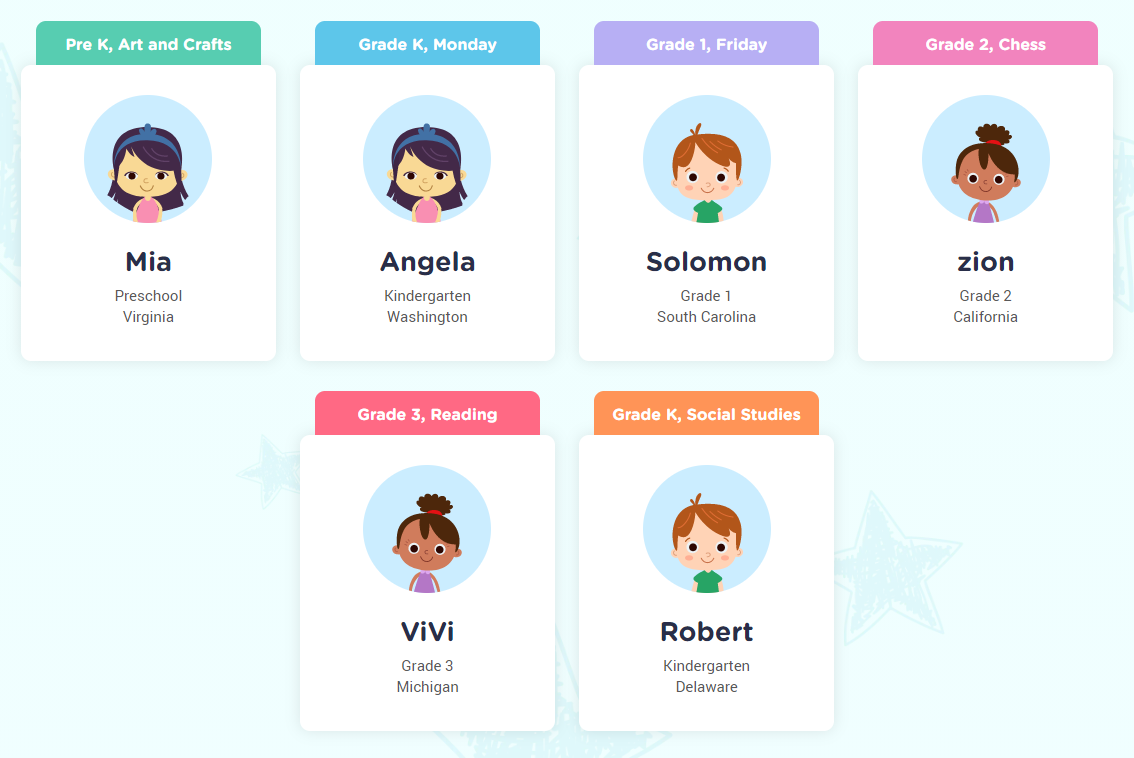Enhancing logical thinking Normal Worksheets for Ages 7-9
7 filtered results
-
From - To
Explore our "Enhancing Logical Thinking Normal Worksheets" designed for children aged 7-9, perfect for developing critical thinking and problem-solving skills. These engaging worksheets offer a variety of fun activities that challenge students to analyze, reason, and draw conclusions. From puzzles and pattern recognition to sequencing and deduction exercises, each worksheet promotes logical reasoning in an enjoyable way. Ideal for both home and classroom use, our resources foster independent thinking and boost confidence in young learners. Ignite your child’s curiosity and encourage cognitive growth with our thoughtfully crafted worksheets, making learning an exciting adventure that nurtures essential life skills!
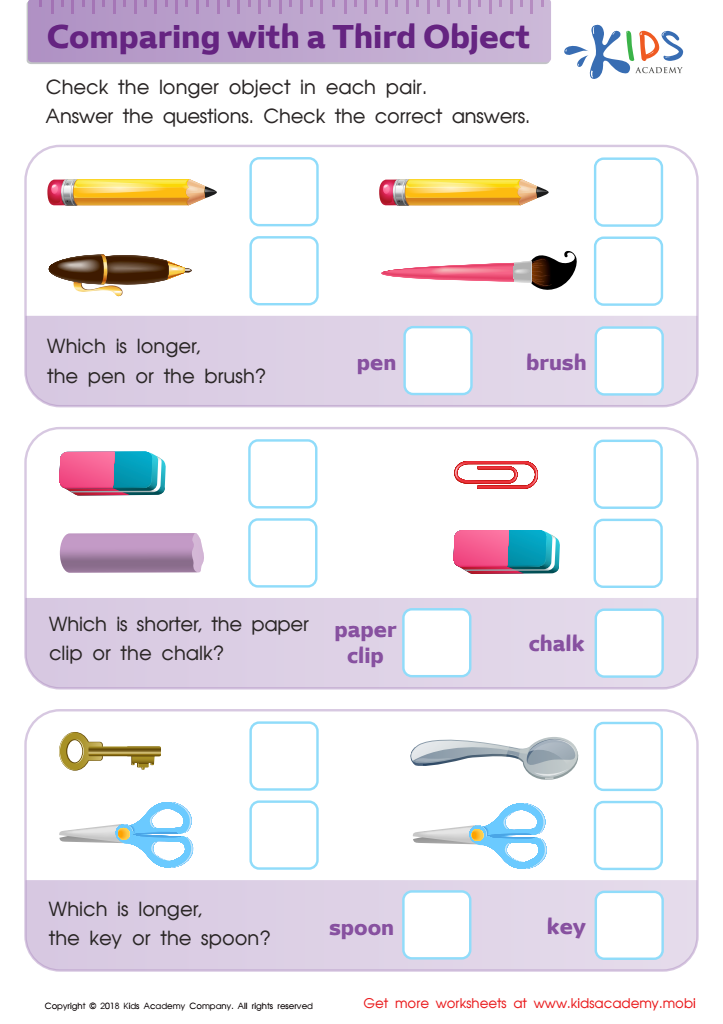

Comparing with a Third Object Worksheet
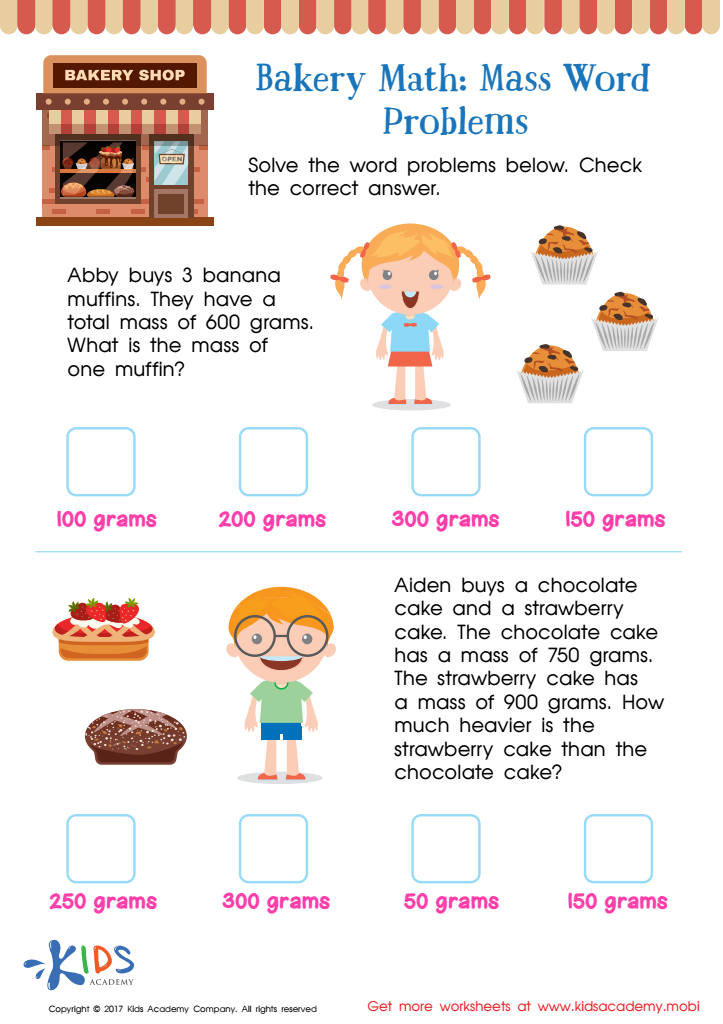

Mass Word Problems Worksheet
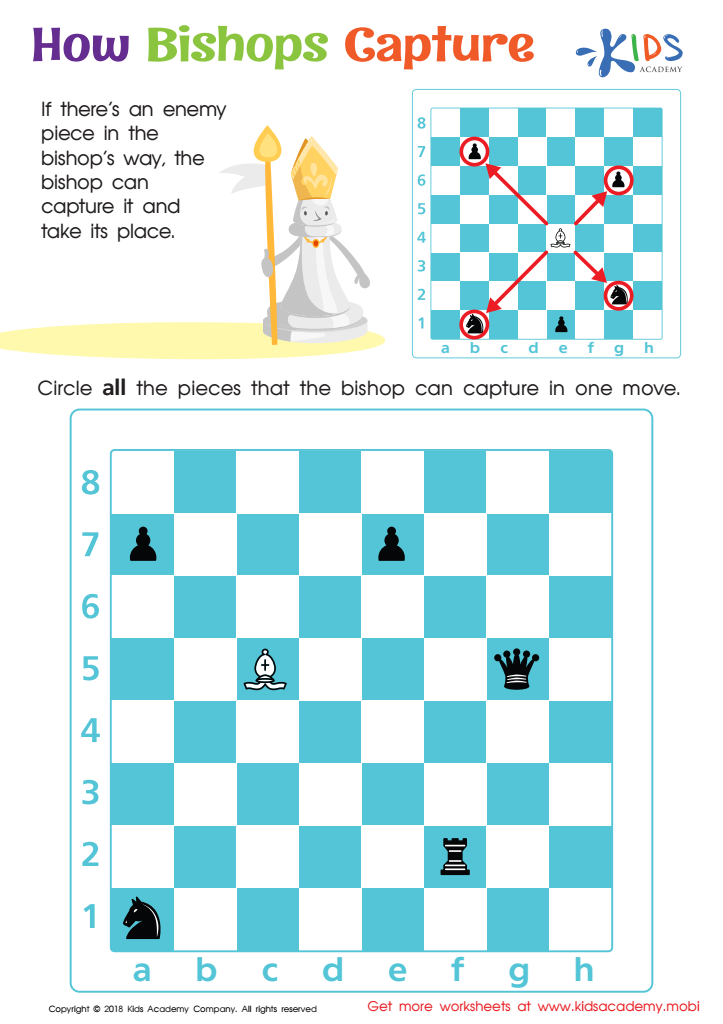

How Bishops Capture Worksheet
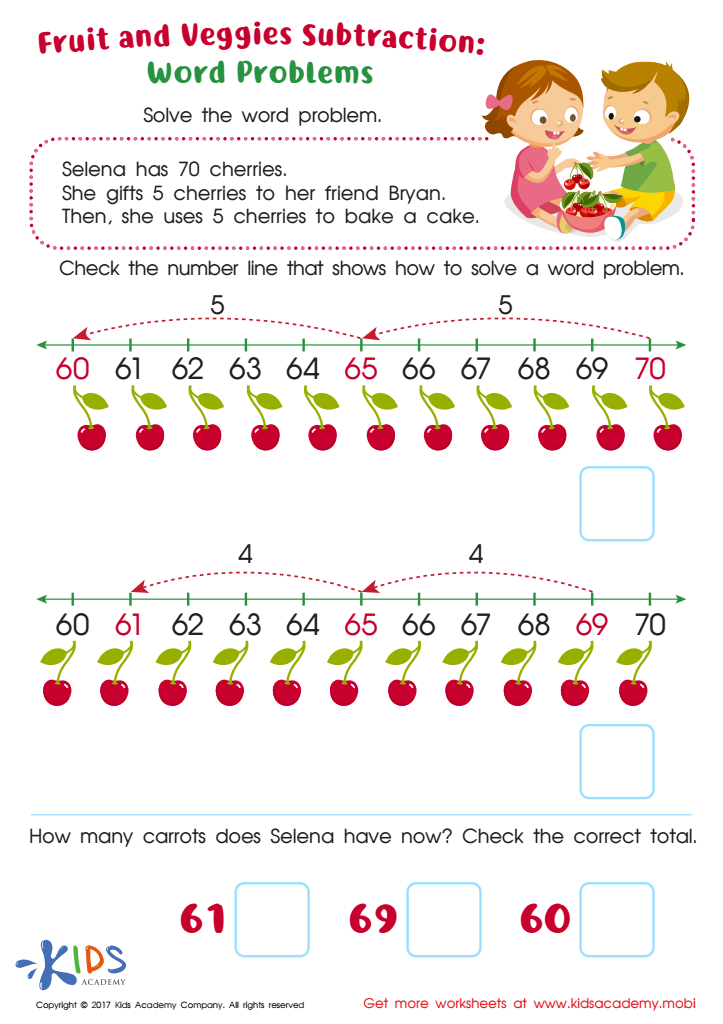

Subtraction Word Problems Free Printable
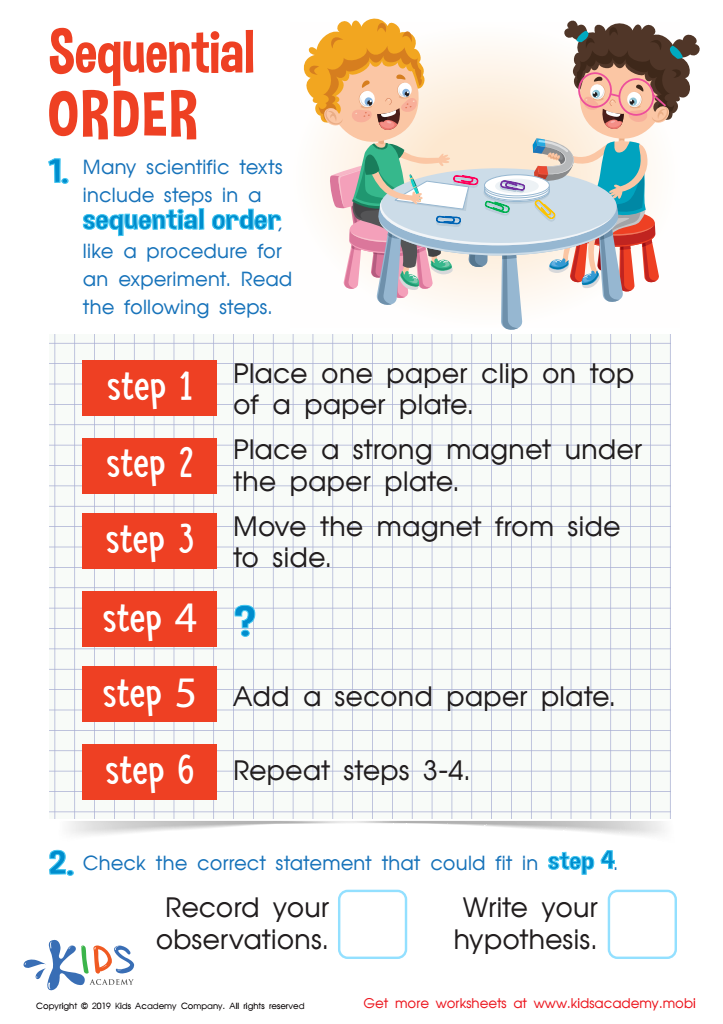

Sequencential Order Worksheet
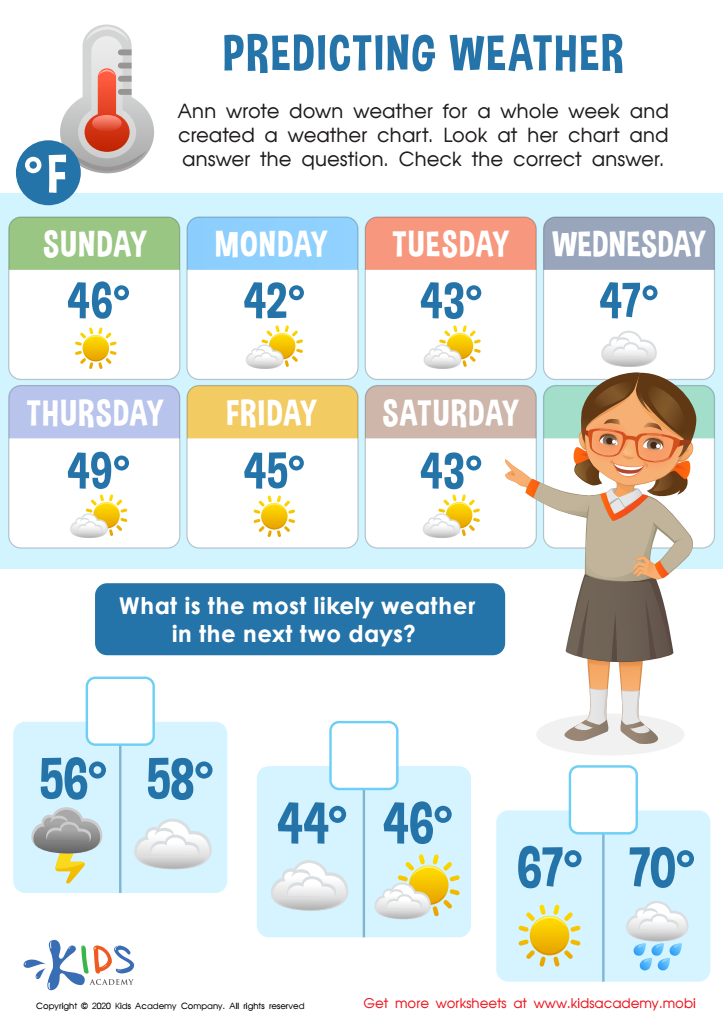

Predicting Weather Worksheet
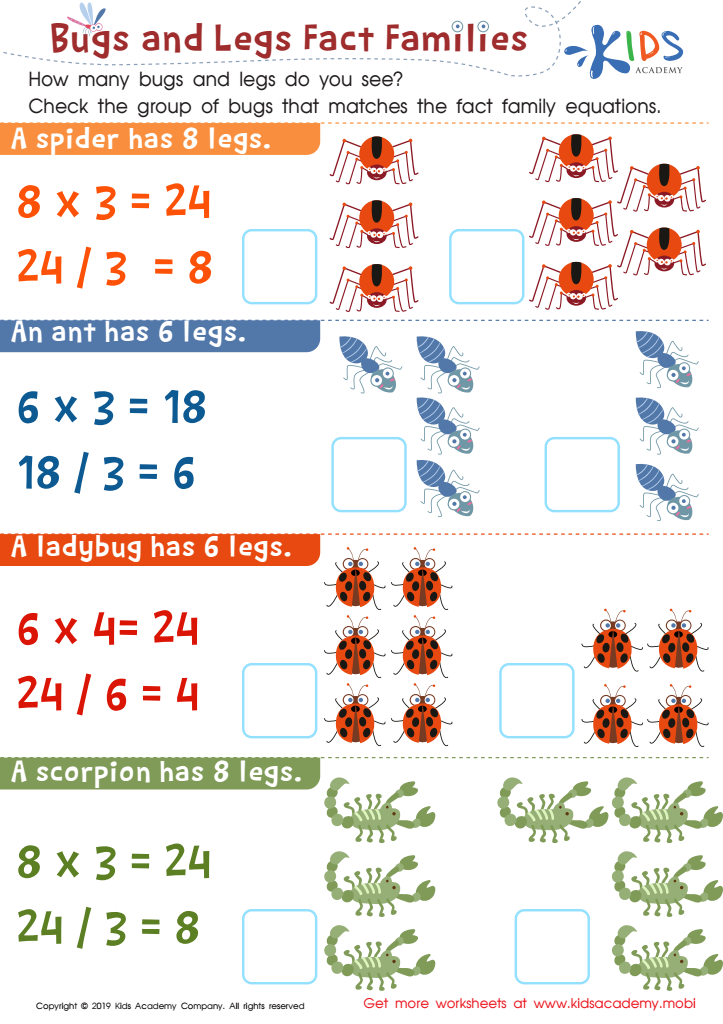

Bugs and Legs Fact Families Worksheet
Enhancing logical thinking in children aged 7-9 is crucial for their overall cognitive development and academic success. At this age, children are beginning to develop critical reasoning skills that form the foundation for future learning. Logical thinking enables them to make connections between concepts, solve problems effectively, and understand cause-and-effect relationships.
Parents and teachers should prioritize this developmental aspect because strong logical reasoning skills can significantly boost a child’s performance in subjects like mathematics and science, where analytical thinking is essential. Furthermore, these skills help children make thoughtful decisions in everyday life, from choosing friends to solving conflicts.
By engaging children in activities that promote logical thinking—such as puzzles, games, and critical discussions—adults can create an enriching environment that encourages curiosity and creativity. This not only enhances their academic abilities but also fosters self-confidence and independence, preparing them for more complex subjects as they progress in school.
Investing in the enhancement of logical thinking during these formative years lays the groundwork for lifelong learning, adaptability, and problem-solving skills, equipping children to navigate an increasingly complex world. Therefore, it is essential for parents and teachers to actively support opportunities for the development of logical thinking.
 Assign to My Students
Assign to My Students








